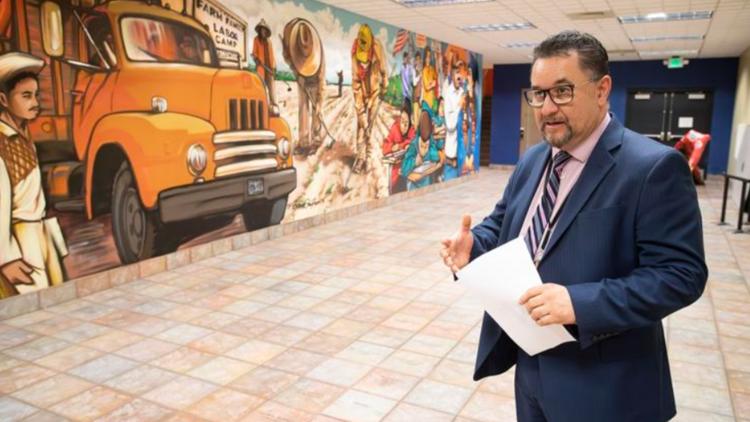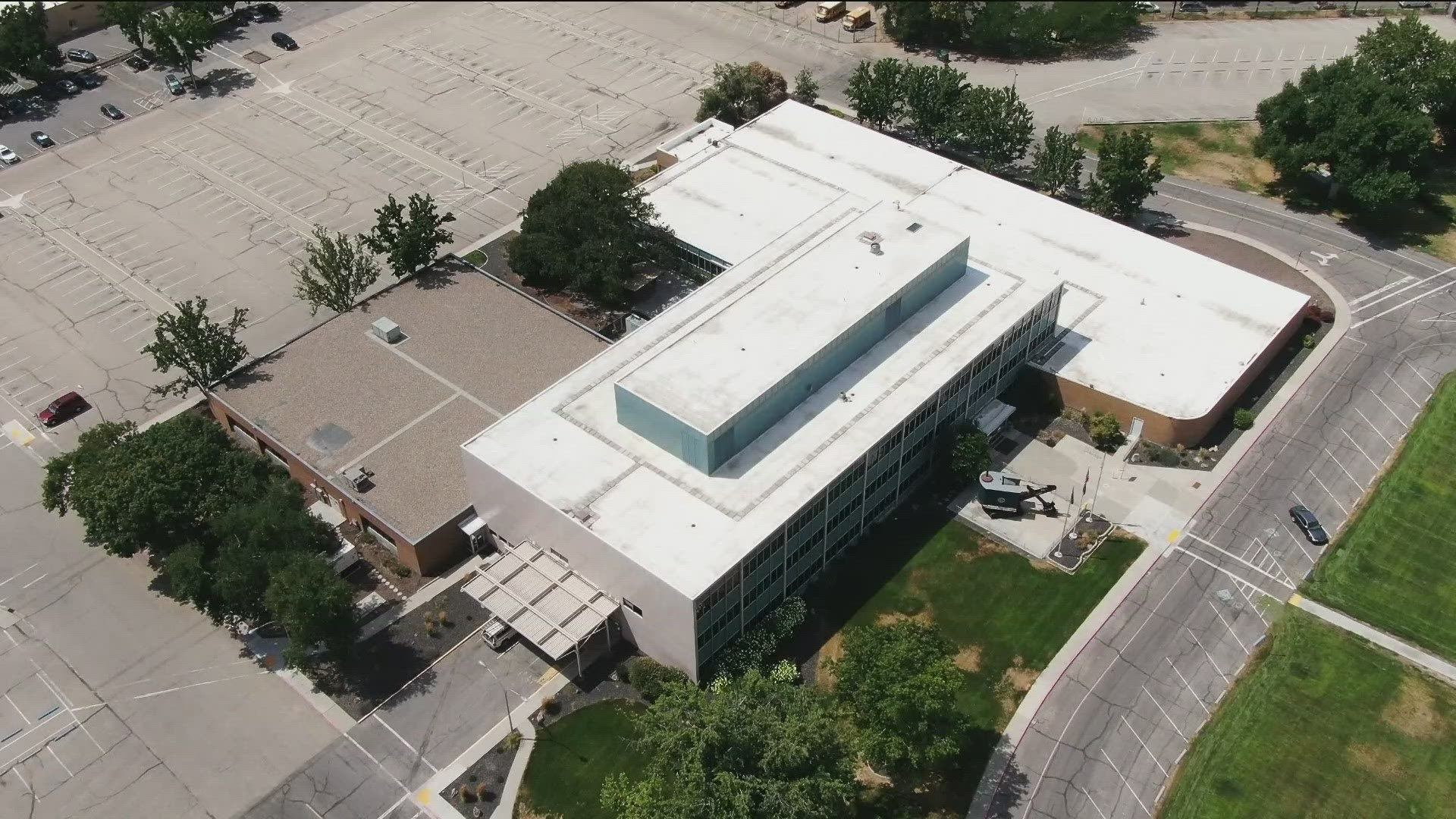NAMPA, Idaho — This story originally appeared in the Idaho Press.
No longer known as the Hispanic Cultural Center of Idaho, the Idaho Hispanic Community Center has seen more than just a new name in recent months — its new facilities manager hopes to give it a facelift.
It has been over a year since the city took control of the former center after community complaints of mismanagement and failure to serve the Hispanic community. The HCCI was alleged to have broken its lease agreement with the city. This included requirements to provide community programming and keep detailed records of maintenance costs.
The center has been a community gathering space for the local Hispanic community since its creation in 2003. The two-story building serves as an event venue with rooms available for reservation. Other spaces in the building are leased out to local organizations as office space, serving as a center for Hispanic resources.
The goal is to serve the local community through resources, education and the appreciation of Hispanic cultures.
Facilities Manager José DeLeon aims to give the center, now known as the IH2C, a second life.
Walking through the building, DeLeon rattled off facts about the history of the art on the walls. He spoke as if he was there when local artists painted murals in the center decades prior, but he wasn’t.
“I read everything I get my hands on and I pay attention,” DeLeon said. “The key is listening.”
DeLeon grew up in north Nampa and has previous experience working for the Idaho Department of Labor and the Idaho Hispanic Chamber of Commerce. Beginning in February, DeLeon saw his new position as an opportunity to work closely with the community.
Since then, the task of revitalizing the center has been like “drinking from a firehose,” with lots to do and learn. DeLeon said the key to his knowledge of the center is the willingness to have a conversation. If someone wants to talk to him, his answer is always ‘yes.’
“Even if I don’t have a minute to talk, I sit down,” he said.

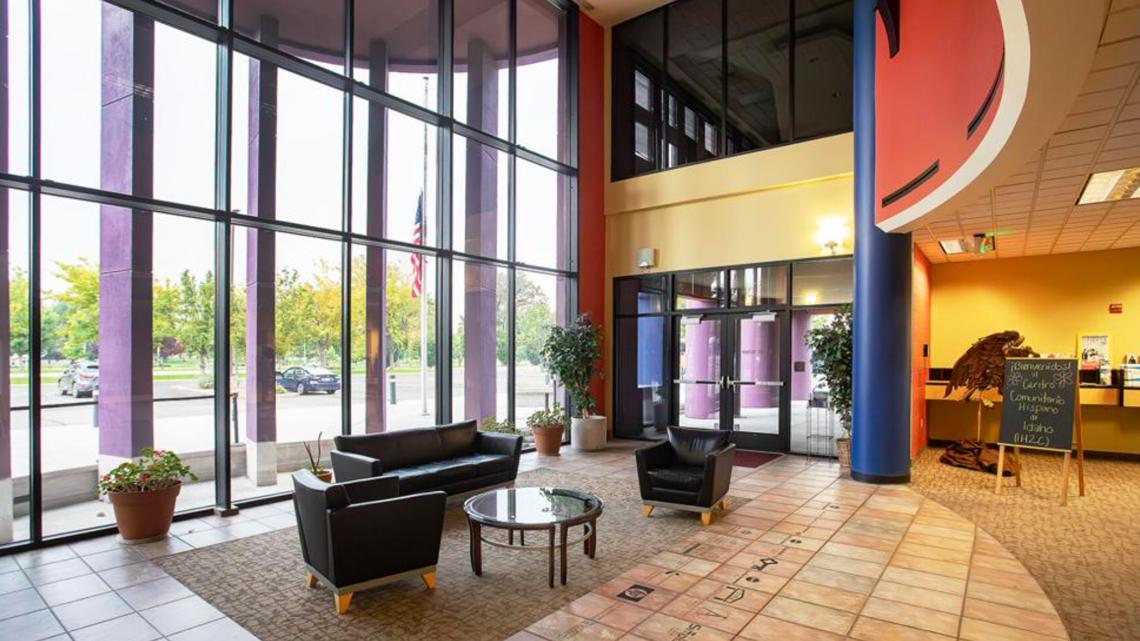
RENOVATIONS
Defective lights, nonfunctioning kitchen appliances and an outdated HVAC system are just some of the much-needed fixes the center will be undergoing.
Progress has been slow, but steady. Bathrooms have seen major repairs, shattered floor tiles have been replaced and the center smells of freshly applied paint. DeLeon said that the goal is to do things the correct way while being good stewards of city tax dollars.
In a May meeting, Nampa Chief Financial Officer Doug Racine said $298,903 will be utilized for the center by the end of 2024, with the majority going toward repairs and maintenance. This included projects that have taken place since January.
At this time last year, the city estimated over $180,000 worth of repairs including a full roof replacement, repairs to the HVAC system and updating the parking lot.
DeLeon said some of these repairs are on hold as the center looks to raise money. The center funds itself through city tax dollars, event rentals and leasing office spaces.
Last Friday was a typical one for the center. It hosted an event for the Mexican Consulate and then opened its weekly 208 Night Market with a variety of vendors. The day ended with preparations for a quinceañera to be held the next morning.
“That’s why we’re here,” DeLeon said. “To provide a venue to be able to have some culturally relevant events.”
Large event rooms have seen light repairs and new furniture to prepare for quinceañeras, weddings and other events. Following renovations, DeLeon said the center’s kitchen will soon be recertified for use.
When the center was still known as the HCCI, community members normally brought their own cleaning supplies to clean the bathrooms before an event, DeLeon said.

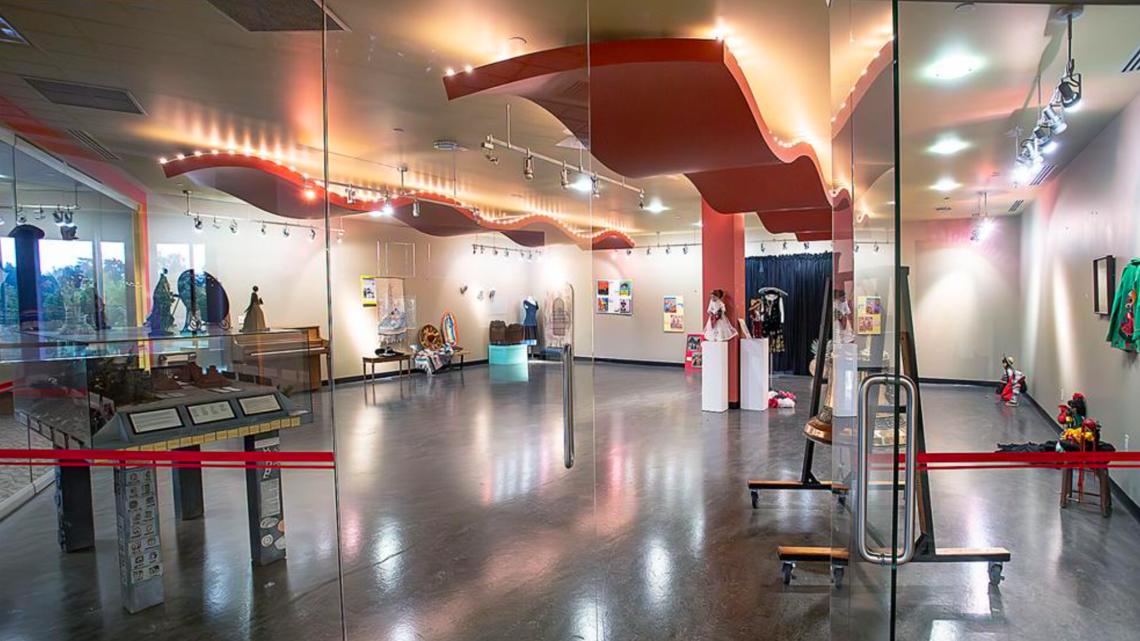
DeLeon has been in talks with organizations looking to lease office space. Previous renters have also continued to work out of the center.
Previously, use of the center was by appointment only, according to DeLeon. Now, the building is open weekdays from 10 a.m.-5 p.m.
For those renting the center on weekends, DeLeon said access will be easier with keycards to unlock doors.
DeLeon is in the early stages of establishing a lending library with Spanish books for residents to stop by. He also hopes to replenish the center’s collection of art, as much of it was removed during the transition of management.
“Although that focus is that cultural piece, our intent is to make this welcoming to everybody — not just the Latino Hispanic community — but everybody who wants to walk through,” he said.
THE MISSION
Bringing the center back in full force has shown to be a community effort. Meridian software company In Time Tec has donated laptops for the center’s computer lab, and a local Walmart has volunteered to help remove clutter from a packed storage area.
Organizations leasing out office space also serve community interests.
The Idaho Hispanic Foundation, a local non-profit, moved into the IH2C earlier this year. In addition to office space, Chief Executive Director Mari Ramos has worked to open a community resource center to replace the one previously located at Snake River Elementary.
Snake River Elementary is one of four schools that were closed by the Nampa School District at the end of the 2023-2024 school year. With the school’s closure, the IHF resource center that functioned out of it also had to be relocated.

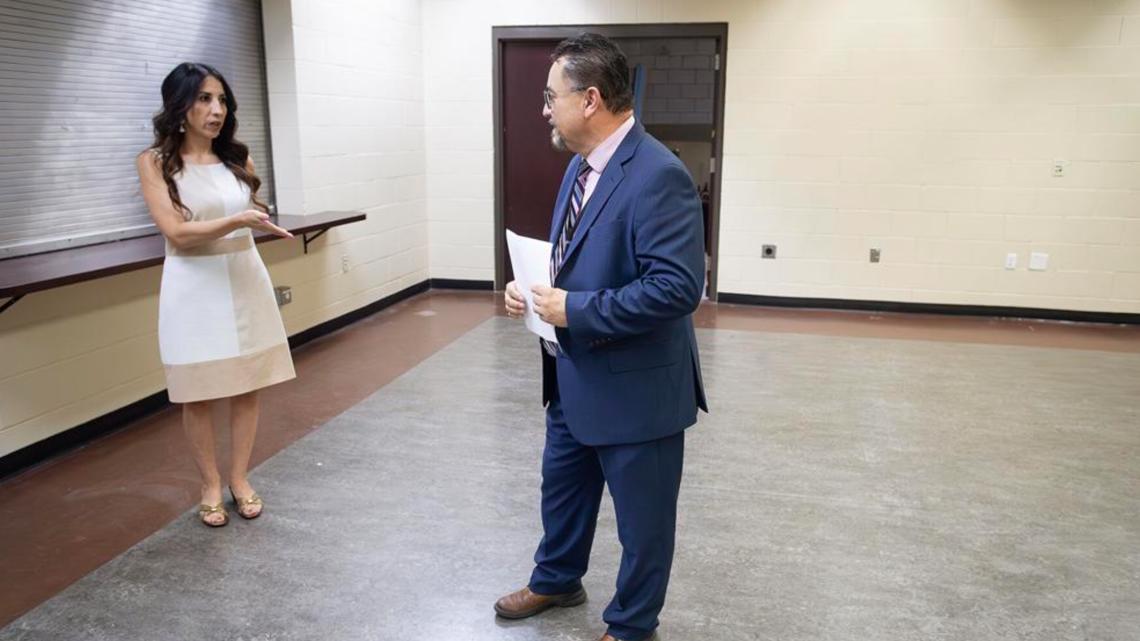
Ramos said it was important to keep the resource center in a centrally located part of north Nampa when working with community members who can’t drive.
“I think this building (the IH2C) has been very recognized by the Hispanic community as a place to go,” Ramos said.
The IHF connects people to a variety of services including housing aid, business training and food.
Ramos said this part of Nampa is a high-need area. According to the Idaho State Department of Education, 15% of Snake River Elementary’s 2023 student population was homeless and 72% were from low-income households.
The overall goal for Ramos is to uplift the community.
“It’s not always just the Hispanic community. We get people from all sorts of different sectors of life,” she said.
Ramos’s job involves building trust through community relationships. For some Hispanic families, pride can get in the way of reaching out for help, Ramos said.
The IHF often connects individuals with a Spanish translator for medical appointments. Since moving into the IH2C in February, Ramos said approximately 85% of families they have worked with list Spanish as their language of comfort.
“Sometimes people think that because somebody speaks both languages, that they should be able to understand,” Ramos said. “But the language of health care and the language are just different.”
Similarly, the IHF is working toward implementing consistent programming for financial and business literacy.
“What I am looking forward to the most is — once all of the programming is built in and all of the supports are in the building — just being able to take someone from maybe having nothing, to developing their skills in all of the different areas, all out of one same place.”
This article originally appeared in the Idaho Press, read more on IdahoPress.com.


